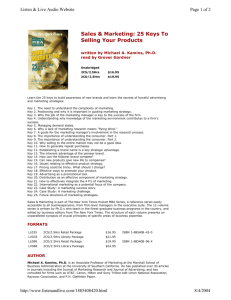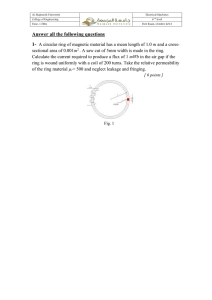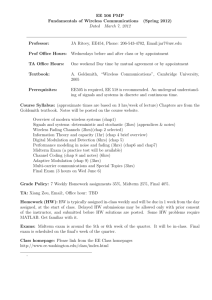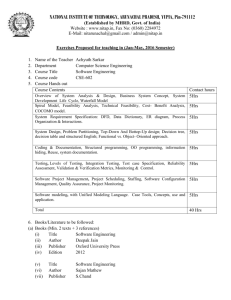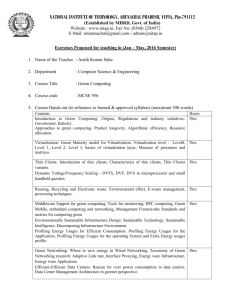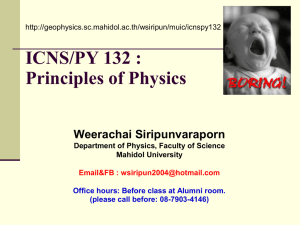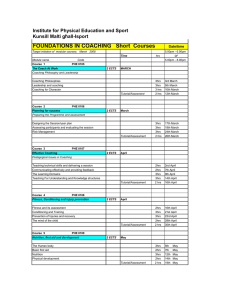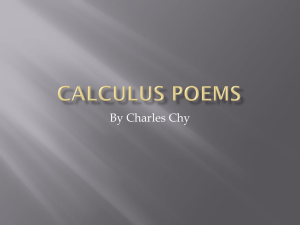2015-2016 Introductory Physics 2 (a calculus based module
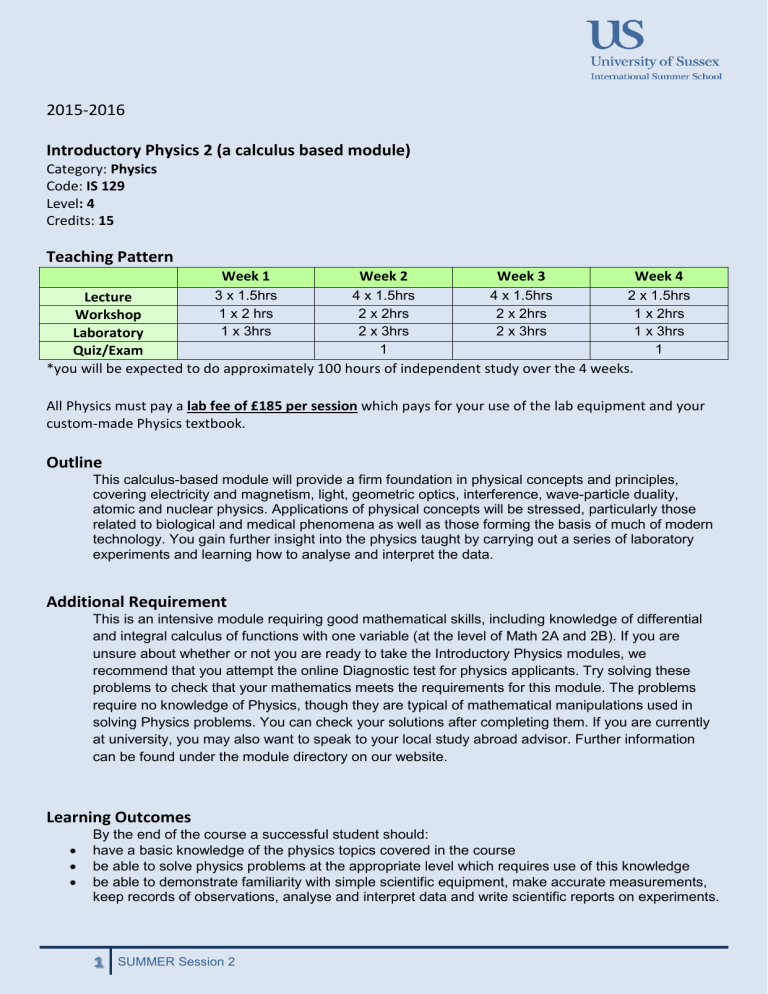
2015-2016
Introductory Physics 2 (a calculus based module)
Category: Physics
Code: IS 129
Level : 4
Credits: 15
Teaching Pattern
Week 1 Week 2 Week 3 Week 4
Lecture
Workshop
Laboratory
Quiz/Exam
3 x 1.5hrs
1 x 2 hrs
1 x 3hrs
4 x 1.5hrs
2 x 2hrs
2 x 3hrs
1
4 x 1.5hrs
2 x 2hrs
2 x 3hrs
2 x 1.5hrs
1 x 2hrs
1 x 3hrs
1
*you will be expected to do approximately 100 hours of independent study over the 4 weeks.
All Physics must pay a lab fee of £185 per session which pays for your use of the lab equipment and your custom-made Physics textbook.
Outline
This calculus-based module will provide a firm foundation in physical concepts and principles, covering electricity and magnetism, light, geometric optics, interference, wave-particle duality, atomic and nuclear physics. Applications of physical concepts will be stressed, particularly those related to biological and medical phenomena as well as those forming the basis of much of modern technology. You gain further insight into the physics taught by carrying out a series of laboratory experiments and learning how to analyse and interpret the data.
Additional Requirement
This is an intensive module requiring good mathematical skills, including knowledge of differential and integral calculus of functions with one variable (at the level of Math 2A and 2B). If you are unsure about whether or not you are ready to take the Introductory Physics modules, we recommend that you attempt the online Diagnostic test for physics applicants. Try solving these problems to check that your mathematics meets the requirements for this module. The problems require no knowledge of Physics, though they are typical of mathematical manipulations used in solving Physics problems. You can check your solutions after completing them. If you are currently at university, you may also want to speak to your local study abroad advisor. Further information can be found under the module directory on our website.
Learning Outcomes
By the end of the course a successful student should:
have a basic knowledge of the physics topics covered in the course
be able to solve physics problems at the appropriate level which requires use of this knowledge
be able to demonstrate familiarity with simple scientific equipment, make accurate measurements, keep records of observations, analyse and interpret data and write scientific reports on experiments.
1
SUMMER Session 2
Indicative Reading List
Customized text book for the University of Sussex International Summer School (2014). Based on
Principles of Physics: A calculus based text (5 th edition) International edition, Raymond A
Serway & John W Jewett and Physics for Scientists and Engineers with Modern Physics (9th edition) Raymond A Serway & John W Jewett, Cengage Learning.
Students will not be required to purchase any other texts.
Contacts
Dr Jackie Grant
Prof Mark Hindmarsh
J.J.grant@sussex.ac.uk
M.B.Hindmarsh@sussex.ac.uk
2
SUMMER Session 2


